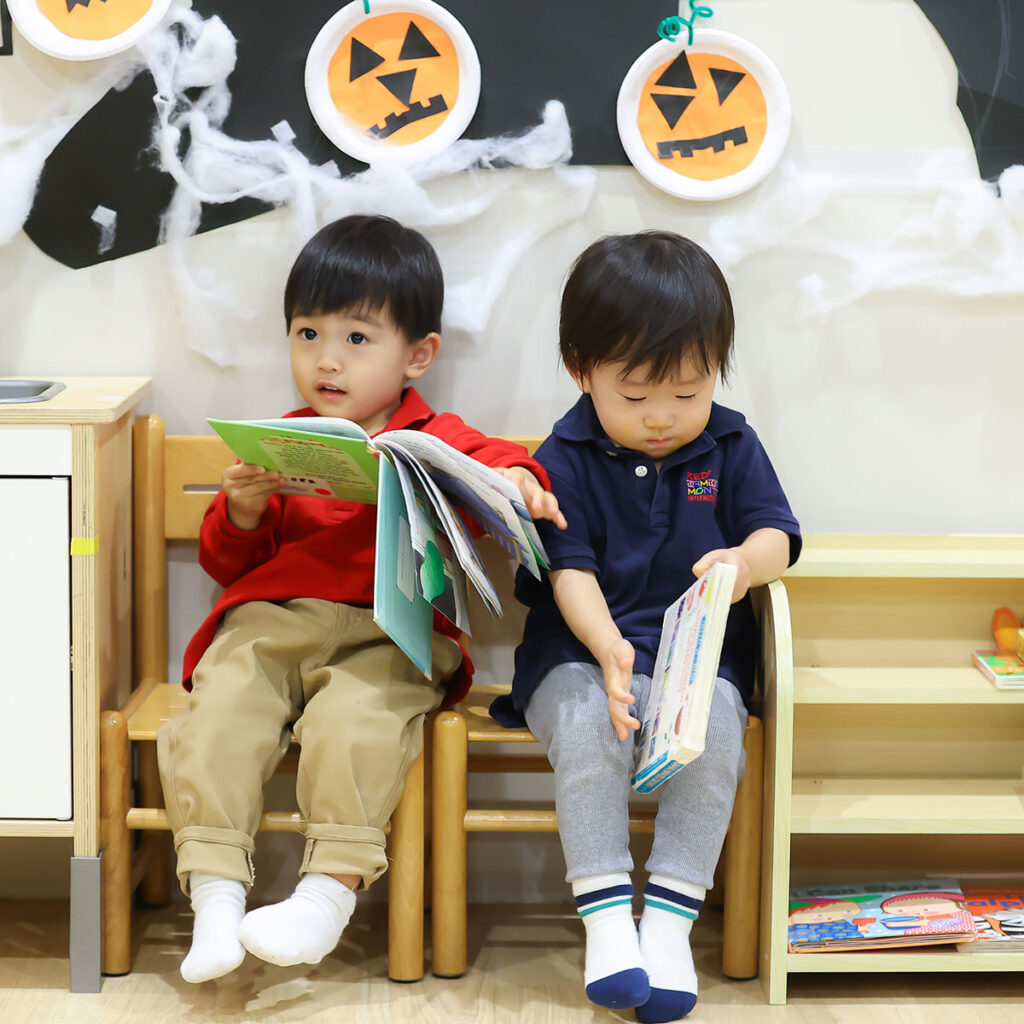Curriculum
Five Areas in Montessori
Practical life
“Never help a child with a task at which he feels he can succeed.”
— Dr. Maria Montessori —
Practical life encompasses a wide range of real-life activities and engage children in real life daily routines. It is divided into four main areas: Preliminary activities and Body Movement; Self Care; Care of Environment; and Grace and Courtesy. These activities help strengthen a child’s fine and gross motor skills and lengthen their concentration span through the repetition of work, focus on detail, and coordination. Eventually leading to greater independence, self-esteem, and confidence in themselves. Practical life activities include sewing, cleaning, sorting, polishing, scooping, transferring, pouring and so forth.
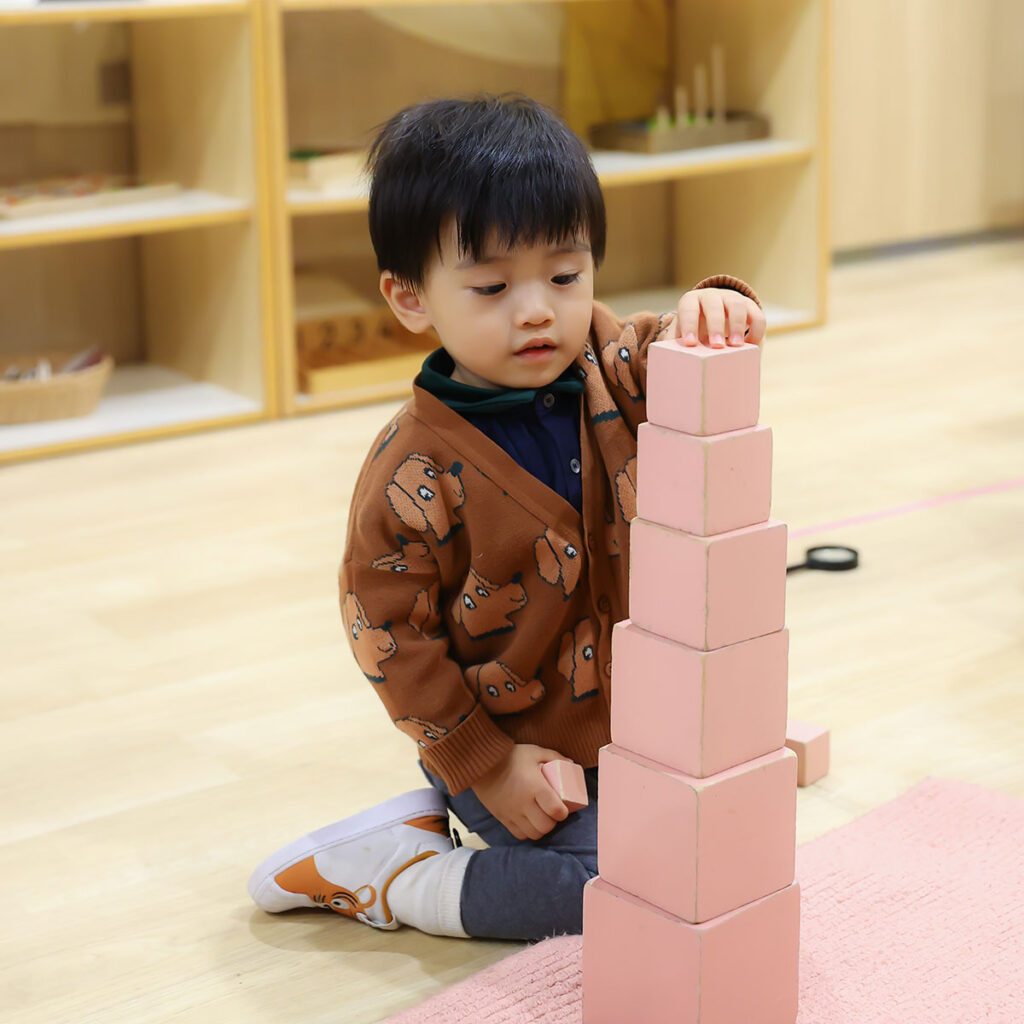
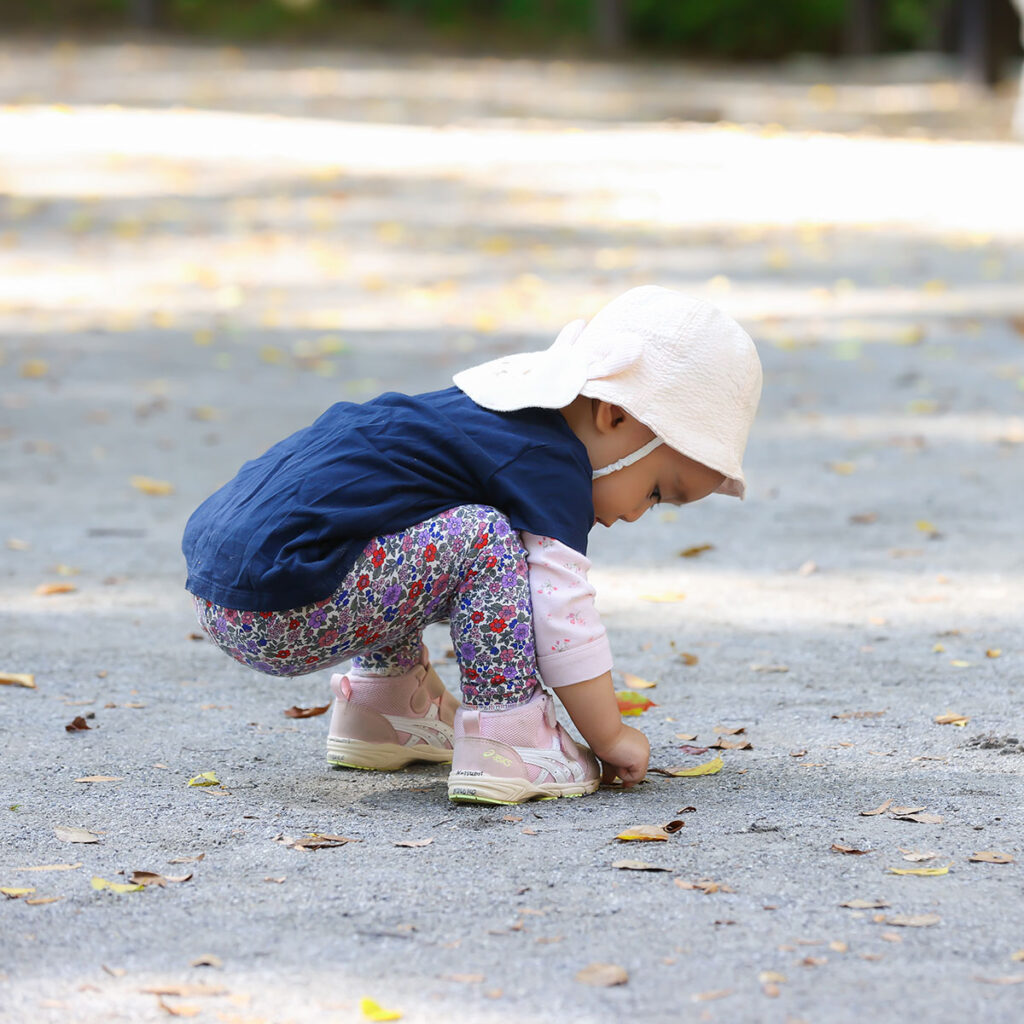
Sensorial
“Let the children be free; encourage them; let them run outside when it is raining…”
— Dr. Maria Montessori —
The objective in the Sensorial area is to aid in the development of the child’s five senses. Montessori materials are designed to help isolate a single character of each sense.
Mathematics
The greatest sign of success for a teacher is to be able to say, ‘The children are now working as if I did not exist.’”
— Dr. Maria Montessori —
In the mathematics area, children are introduced to materials that encourage their continuous learning in the world of numbers. They are taught quantity, solving problems in addition, subtraction, multiplication, and division, as well as counting to infinitive numbers. These Montessori materials allow the child to understand the purpose of numbers and learn clear reasoning.
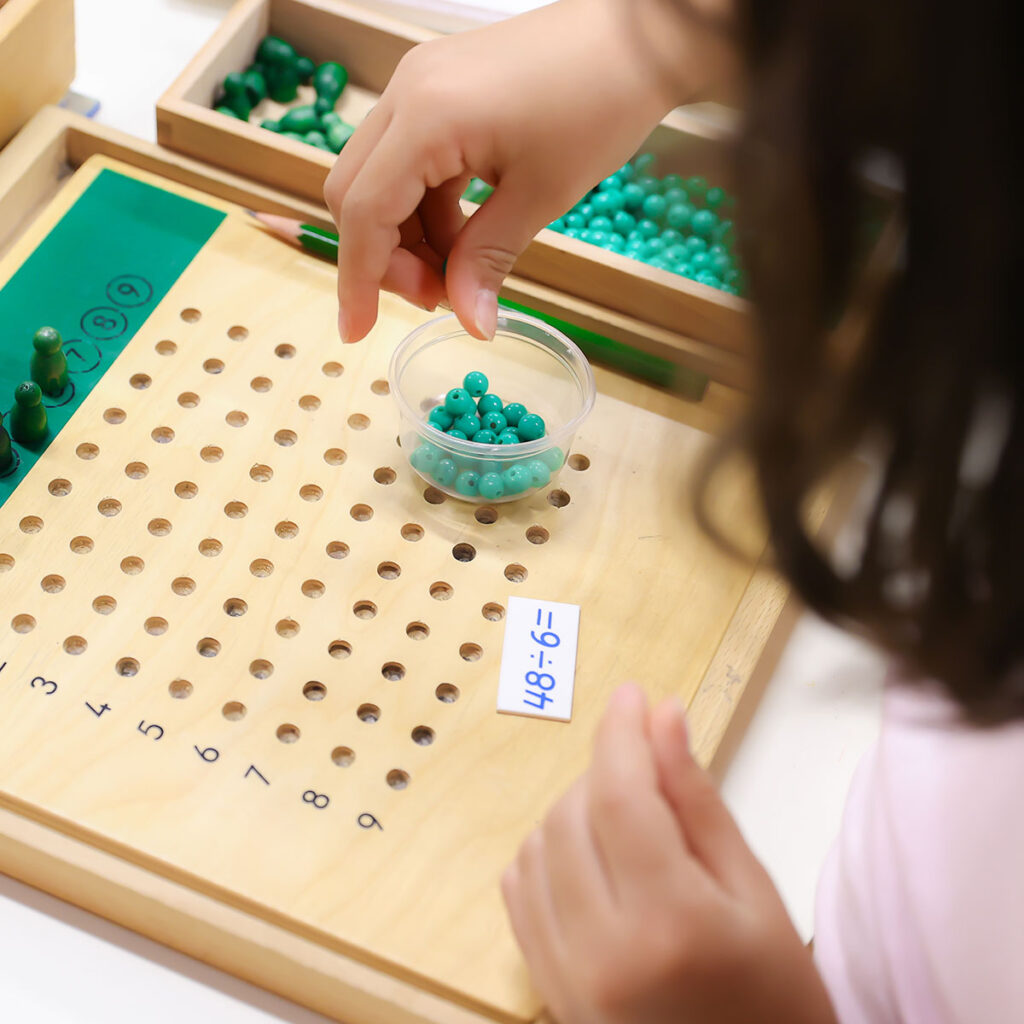
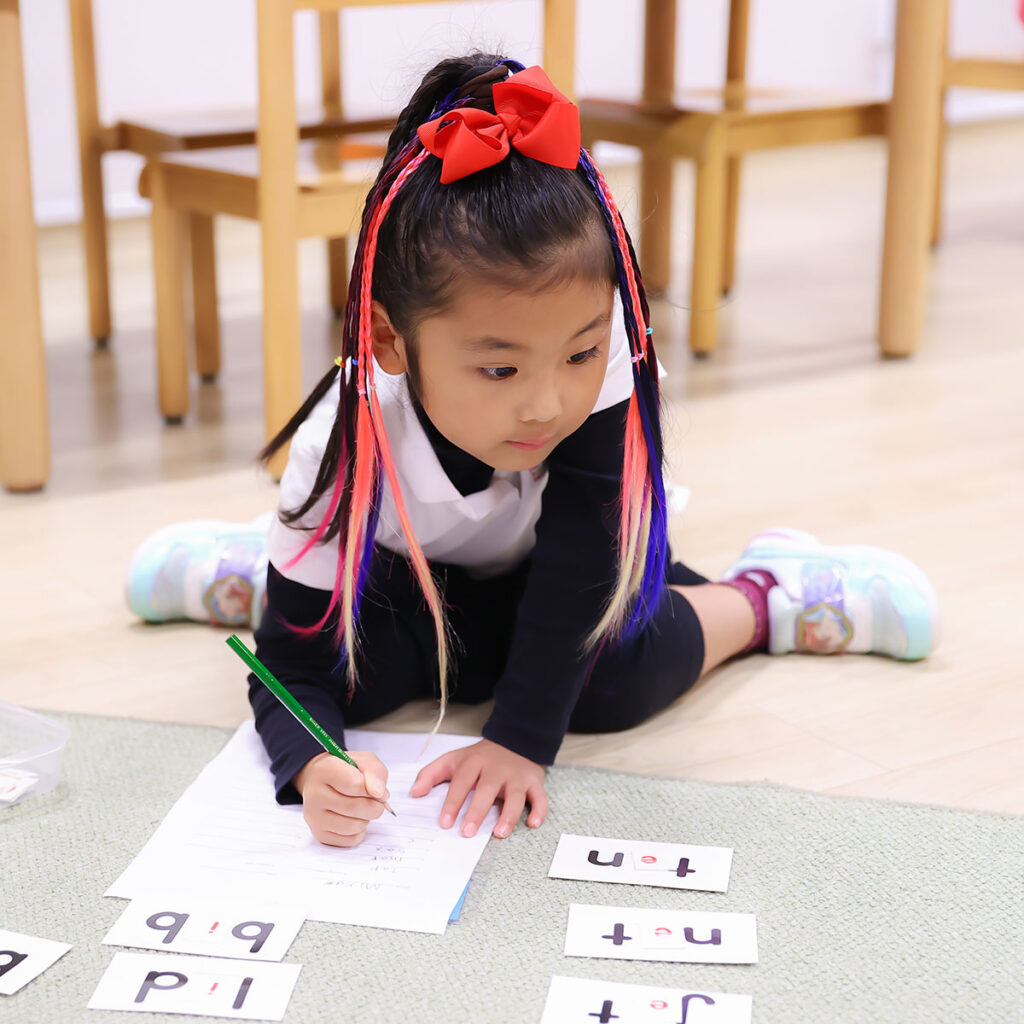
Language
“Education is a natural process carried out by the child and is not acquired by listening to words but by experiences in the environment.”
— Dr. Maria Montessori —
In the language area, children are enriched in an environment that exposes them to many words, conversations, forms of poetry, and multi-cultural literature. Letters of the alphabet are introduced phonetically, which helps lead the child in word building, sentence structures, reading, and writing.
Cultural Studies
“One test of the correctness of educational procedure is the happiness of the child.”
— Dr. Maria Montessori —
Cultural activities help the child understand where he/she is in the world. The culture area in a Montessori classroom covers a variety of subjects from Geography, Life Sciences, Botany, Zoology, Arts, Music, and History. For example, geography includes learning the physical location of a country on the globe, to that country’s cultural practices. Children learn to care for animals, then learn the physical anatomy and different categories of animals and so forth.
